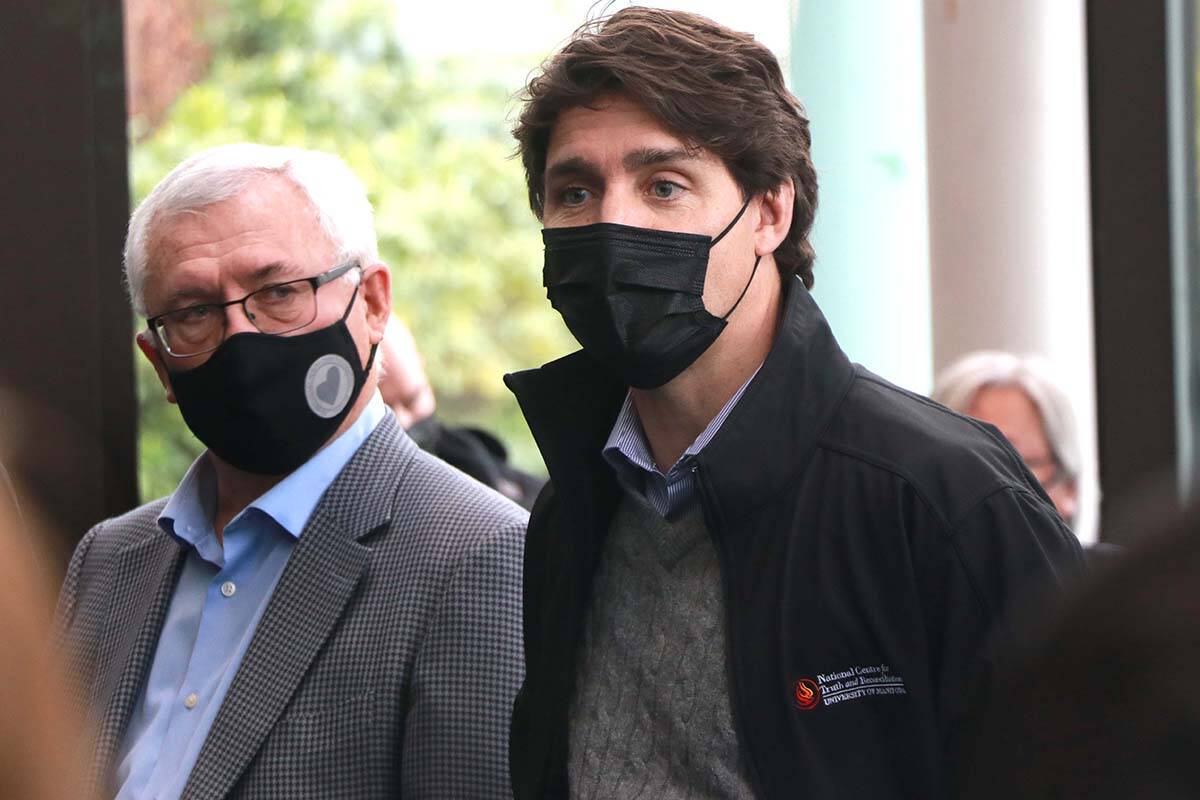
OTTAWA, Nov 27, 2021 (BSS/AFP) - Prime Minister Justin Trudeau on Friday
visited areas of Canada's Pacific coast hit by catastrophic floods, warning
of further climate mayhem as the region braces for more torrential rains.
"This will not be the last crisis Canadians go through," Trudeau told a
joint news conference with British Columbia's premier, John Horgan.
"Extreme weather events are going to become more frequent," he said,
adding: "We need to address the long term climate change problems," including
by cutting CO2 emissions and making infrastructure more resilient.
Heavy rains hit British Columbia in mid-November, causing widespread
flooding and mudslides that damaged or destroyed roads and bridges, forced
thousands to evacuate their homes and left at least four dead and one
missing.
This followed record-high temperatures over the summer that killed more
than 500 people in the province, as well as wildfires that destroyed a town.
"We're facing the brunt of climate change, not in the future, but right
now," Horgan said.
"Our farms have been flooded, our roads have been washed away and our
communities are underwater, and more rain is coming," he said.
Horgan's government on Friday ordered sections of three major highways
closed ahead of two more major rain storms expected over the coming days.
Environment Canada has forecast up to 120 millimeters (4.7 inches) of rain
over the weekend, warning it could lead to flash floods and washouts.
A second storm is expected to slam the province on Monday.
Earlier, Trudeau, with a local mayor, surveyed aerial images of the flooded
Sumas Prairie east of Vancouver, and met with soldiers sandbagging as well as
residents affected by the floods.
"I saw the extent of the pools of water, the challenges of so many farms,
so many communities impacted," Trudeau said, and met people "fighting for
their homes."
Officials said this week the province has started barging in fuel from the
United States to help ease a gasoline shortage. Sales at the pump in
Vancouver, which was isolated by the storm damage, have been rationed.
Exports of lumber and grain, meanwhile, are reportedly backed up, as
shipments were unable for two weeks to get to the port of Vancouver.
Both Canadian Pacific and Canadian National railways have started moving
goods again between Vancouver and the city of Kamloops to the east, according
to a port operations update.